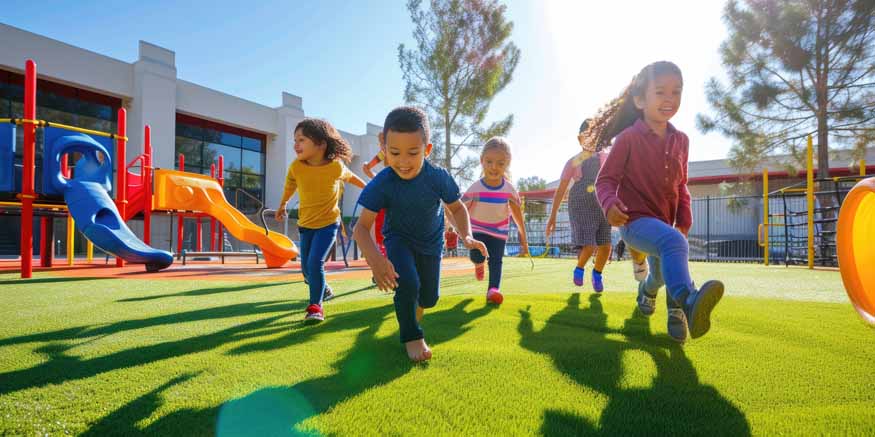Critical thinking skill is the ability to look at information, facts, and evidence to conclude, form an opinion, take a decision, or make judgments. Historical literature dating back to Socrates talks about the importance of “seeking evidence, closely examining reasoning and assumptions, analysing basic concepts, and tracing out implications not only of what is said but of what is done as well”.
Critical thinking has been identified as one of the top 10 skills for the future by the World Economic Forum’s Future of Jobs report. Strong critical thinking students often find success in their academics and whichever field they might choose to be in – medical, engineering, commerce, management, or public service. The question most people ask is – is one born with critical thinking skills or can they be acquired? The simple answer – while some are born critical thinkers, critical thinking skills can be acquired as well. Here we list down some tools and techniques for parents to teach critical thinking skills to their children.
Stroke curiosity
Children are born curious. They ask a lot of questions and counter-questions about why things happen the way they do. These are signs that all children are born with the ability to think critically. It is at school where this ability gets muzzled as they start to stress on uniformity and compliance. Statements such as “Do as you are told to ”, “Because I said so”, and “This is how it is” are telling signs that children’s critical thinking is being muzzled. Parents have a critical role to play here to keep their critical thinking juices flowing. Allow them to be curious. Encourage them to ask questions, to question everything, to challenge the status quo. Some you might be able to answer, some you may not. Encourage them to figure out answers to their questions. This way they will learn how to collect the required information from the right sources to get answers to their questions.
Suspend Judgement
This might sound contrary to the very definition of critical thinking. The end objective is defined as forming an opinion or a judgement. However, in critical thinking, the judgement needs to be formed only after the careful processes of data collection, analysis, inference, and evaluation. Encourage children to not form a judgement, or an opinion, take a decision, or believe something unless they have done all the due diligence. Never take anything purely at face value.
Create awareness of popular biases.
Most of our judgments go wrong because we suffer from inherent biases. For example, if I say “Nurse”, most of us would imagine a female nurse. Nurses can be males as well. We suffer from numerous such stereotypes linked to professions, race, religion, nationality, etc. Create awareness among children of these biases that we take for granted. Another critical bias is when we mistake correlation for causation. Let’s look at a popular example. As per data collected in the United States, the months with the highest number of shark attacks are also the months with the highest ice cream sales. Does it mean that consuming ice creams causes shark attacks? No! It is simply a correlation, not necessarily causation. Another popularly held bias is confirmation bias. Many people believe left-handed people are more creative. Now, this may not always be true, but whenever we see a left-handed person, we will over-index our focus and perception on how creative the person is.
There are numerous other such biases which lead us to form incorrect judgements. To develop creative thinking skills in students, we must make them aware of these biases.
While these learnings are critical, skill after all is about the ability to ‘do’ something well. Following are some activities students can engage in to hone their critical thinking skills.
Participate in debates
Debating a topic requires a high degree of critical thinking skills. The debater needs to evaluate the pros and cons of the statement, collect data for or against the topic, and then formulate logical arguments for the same. This activity of creating logical arguments that are grounded in unbiased data requires critical thinking. Encourage students to participate in debates – formal or informal. It could be by participating in debate competitions, or even by debating on certain topics at home in the family. For example, you can ask your child to debate for or against certain topics such as “Artificial Intelligence will take away our jobs” or argue for or against various government policies such as Farm Laws, Reservations, Same Sex Marriages, etc. Slot a time during the week for the debate. Have their siblings or other friends participate as opposing debaters. This could be a good exercise to not only improve their general knowledge and strengthen their public speaking skills but also polish their critical thinking skills.
Parents can give children critical thinking tasks such as critically analysing the policy decisions taken by the government (for example, critically analysing the budget) and presenting their point of view. These may not have to be long-drawn assignments, but could just be informal dining room discussions. Challenge the children on logic and reasoning. Encourage them to collect more information and come back with stronger arguments the next day.
Work on critical thinking problems
Another more targeted way to improve critical thinking skills for students is to make them work on critical thinking problems. Hypothetical scenarios can be given to children in which they need to find creative solutions. For example, the scenario could be – one of the children in the house is passionate about playing the drums. However, the large sound he makes while playing the drums disturbs her sister’s studies and the rest of the family. How would you solve this problem without discouraging the passion of the child for drumming? Let the student critically analyse the problem and come up with a creative solution. Such critical thinking practice problems can be easily found on the internet and there are various books as well on this topic. One of the popular books on this topic is “Teach Your Child How to Think” by Edward de Bono.
Enroll your child with EuroSchool today!









